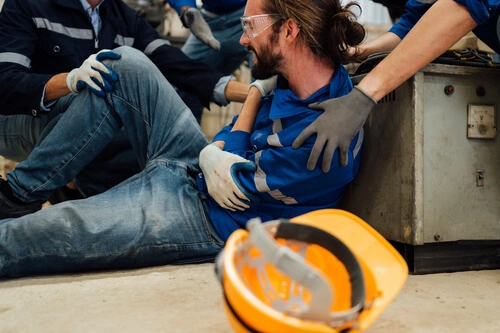The Court’s Role in Protecting Children is Broad

A judge and the courts in family law cases that involve minor children play a special role, unlike that which they play in any other type of case. The judge is not just the person who makes the ultimate decisions or decides disputed facts (assuming the parties don’t settle), but the courts also play the role of parens patriae. This means that the court is the ultimate guardian of the interests of the minor child–even having higher authority than the parents of the child, in certain limited circumstances
This is why if two parties agreed to have no child support paid, the court would not allow that to happen. If parents decided the child would not have to go to school, the court would not allow that to happen. And, even if the parties enter into a marital settlement agreement and a parenting plan, the judge would have the authority to override that agreement, if it were not in the best interests of the child.
Judge Orders Child to Undergo Treatment
A good and recent example of the court’s power can be seen in a new report about a judge in Florida who ordered that a minor child continue getting treatment for leukemia, even though the biological parents wanted to stop the treatments. The parents wanted the child to only undergo alternative medicine treatments.
The judge allowed the parents to provide the child with any alternative medicine treatments they wanted, but these treatments must be given alongside, and not instead of, the cancer treatments. The judge will review medical tests in the future, to evaluate further treatment needed by the child–a role that would normally be played by parents.
The parents in that case had lost custody of their child, making the case more of a dependency law matter, as opposed to pure family law. The court ordered the child live with a grandmother, to ensure that he continues his treatments.
A Judge’s Broad Authority to Protect the Child
Certainly, a court cannot just intervene in decisions made by parents that the court doesn’t like or doesn’t agree with. Decisions about what religion the child will be raised in, or medical care on a routine basis, or what school the child will go to, or the child’s bedtime or curfew, will be the parents’ decision and only fall to the courts if the parents can’t agree.
However, the court can and will intervene in cases where children’s health, safety and welfare are involved, even if it is against the express wishes of both parents.
Parents who have concern that a child’s safety is at risk while in the care of the other parent should not hesitate to ask for court intervention, even if there is a prior order or a parenting plan that would seem to preclude a party from asking the court for help.
Our Tampa family lawyers at The Pawlowski//Mastrilli Law Group can explain every step of the custody process to you. Call us with any questions you may have.
Resource:
cnn.com/2019/05/09/health/florida-toddler-leukemia-chemotherapy-order/index.html










